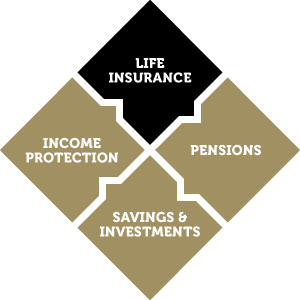

The Inheritance tax must normally be paid in one lump sum within the following timeframes:
This requirement can, of course, create a severe financial strain and is often necessary for part of the inheritance to be sold(If possible),in order to raise the funds to pay the tax. In some cases, the beneficiaries may have to take out a Bank loan to pay the Inheritance Tax.
Yes, your beneficiaries will always have to pay Inheritance Tax on what you leave them? Unless their total gifts and Inheritance stay within their tax-free thresholds(these thresholds vary, depending on the relationship between the person who dies and the person who is inheriting).
If you are planning to leave property and assets which would take a beneficiary over the tax-free threshold, a practical solution is to arrange a Section 72 policy on your life(and that of your spouse, if applicable),which would be used to pay the Inheritance Tax when it falls due.
A Section 72 policy is a life assurance policy, set up under trust for your beneficiaries. It is designed to pay them sufficient funds, on death, to meet the Inheritance Tax that will arise.
Provided that the proceeds of the policy are used to pay the Inheritance Tax bill due, they will not themselves be taxable. Only by taking out a Section 72 policy will you know that your chosen beneficiaries will be able to receive and enjoy the full value of the estate.


Take control of your retirement and plan for the future with a pension from R&L Financial Services.

Investing money safely and professionally is a vital part of your financial security planning.

Income Protection financially safeguards you and your family against long-term illness or injury.